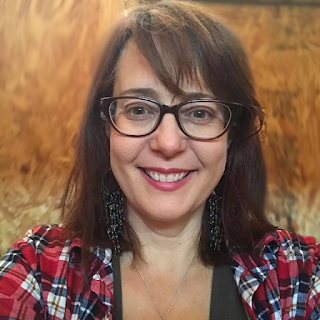Let’s welcome Suzy to the Scribbler
Our last post for 2024 is
actually the beginning of featured guests from the River Street Writing
publishing company
This week you will meet Suzy
and read the SBTS of her newest novel.
Read on my friends.
Suzy Krause is a writer and music lover from the Saskatchewan
prairies. Her first novel, Valencia and
Valentine, was inspired by her time as a debt collector and the
song Heart by Stars and was an
Amazon Editors' First Reads Pick. She wrote her second book, Sorry I Missed You, after walking past a house with three mailboxes that looked like
it could possibly be haunted. It was also a First Reads pick, and was a
bestseller on Kindle and Audible. Her third book, I Think We've Been Here Before, is due September 2024 in Canada and December 2024 worldwide and
has been optioned for TV. It was inspired by a recurring dream about the end of
the world that was oddly comforting. Her books have been translated into
Russian and Estonian.
Title: I Think We’ve Been Here Before
Synopsis:
Marlen and Hilda Jorgensen’s family has received two significant
pieces of news: one, Marlen has been diagnosed with a terminal illness. Two, a
cosmic blast is set to render humanity extinct within a matter of months. It
seems the coming Christmas on their Saskatchewan farm could be their last.
Preparing for the inevitable, they navigate the time they have
left together. Marlen and Hilda have channeled their energy into improbably
prophetic works of art. Hilda’s elderly father receives a longed-for visitor
from his past. Hilda’s teenaged nephew goes missing, and his mother refuses to
believe the world is ending. All the while, Hilda’s daughter struggles to find
her way home from Berlin with the help of an oddly familiar stranger. For
everyone, there’s an unsettling feeling that this unprecedented reality is
something they remember.
As the planet holds its collective breath to see
what happens next amid chaos, denial, acceptance, and hope, this one family
determines to live every moment as if it’s their last. Because, well, it just
might be.
The Story Behind the Story:
This book was born out of a recurring dream I had for a while where the world was ending. I'd always wake up from this dream feeling calm and comforted, wishing I could go back into it—which was so weird, I thought. It was an objectively terrifying dream: me, standing on a hill, watching a burning ball of flame coming straight at me, knowing it was The End. But I wasn't scared.A friend told me that people often have dreams about the end of the world when, in real life, they're leaving something behind, moving on to something new. She said dreams can be a person's brain trying to make sense of stuff that's weird or hard or unprecedented. This seemed accurate to me—a lot of big things in my life were changing at the time. And it made sense to me, that these dreams might be my subconscious working through these changes. Maybe I was trying to comfort and reassure myself. Maybe, underneath all of the uncertainty and fear, I knew that the changes were good.
Anyway, it got me thinking about that phrase, 'the end of the world,' and how often in life it really does feel like the world is ending: we change our mind about something big, we move to a new job or a new place, an important friendship shifts or ends. 'The end of the world' has such a negative connotation—but it's often so necessary and even beautiful, for a thing to end, even a good thing. We say, "Calm down, it's not the end of the world." Well, so what if it is? Maybe what comes next is going to be better.
So I wanted to write a book about the end of the world, but I didn’t want it to be a disaster novel, a terrifying depiction of everything on fire. I wanted it to be calm and comforting, a story about relationships and love and grief, a story about life as much as it is about death.
A question before you go, Suzy:
Scribbler: Where is your favourite spot to write? Are you messy or neat? Your beverage of choice?Suzy: I love writing in coffee shops. There’s something about knowing that others in the room might be working on creative things of their own, being able to watch the people that come in and out and draw inspiration from them. Feeling like you’re part of something even while you’re doing something as solitary as writing. I get a latte if it feels like a special occasion, coffee with cream otherwise.






.jpg)
.jpg)















.jpg)
.jpg)


.jpg)



.jpg)




.jpg)



.jpg)